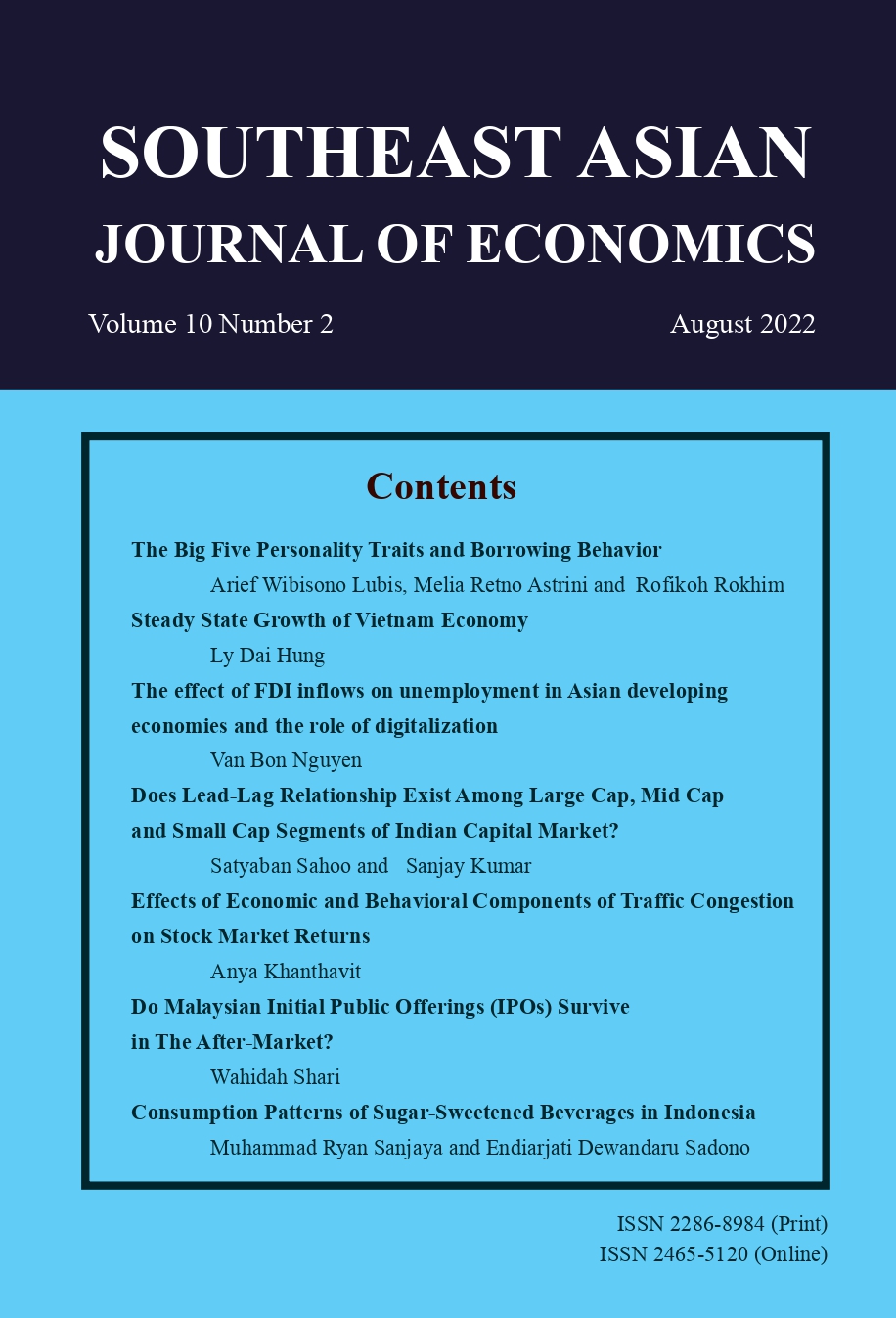Effects of Economic and Behavioral Components of Traffic Congestion on Stock Market Returns
Keywords:
Behavioral finance, stock return behavior, traffic-induced stressAbstract
Traffic congestion generates economic losses within and beyond the confines of transportation systems. In addition, traffic congestion induces stress, which alters investors’ risk preferences and attitude misattribution. As economic losses and investor behavior affect stock market returns, traffic congestion has significant economic and behavioral effects on the returns. This study applies the state-space model to decompose the traffic variable into economic and behavioral components so that their effects can be measured separately. The model is estimated using Kalman filtering. Using the daily Longdo traffic index, the returns on the Stock Exchange of Thailand (SET), and the Market for Alternative Investment (mai) Index portfolios from January 4, 2012 to April 2, 2020, the study finds that the economic and behavioral effects are negative and significant. The economic component Granger causes a behavioral component; however, their joint explanatory power on the SET and mai returns is low at 0.29% and 0.15%, respectively.
Downloads
Published
How to Cite
Issue
Section
License

This work is licensed under a Creative Commons Attribution-NonCommercial-NoDerivatives 4.0 International License.
The submission of a manuscript implies that the paper is an original work and has not been published elsewhere. The author(s) authorize the journal to reproduce or distribute the paper in printed or other electronic forms.







